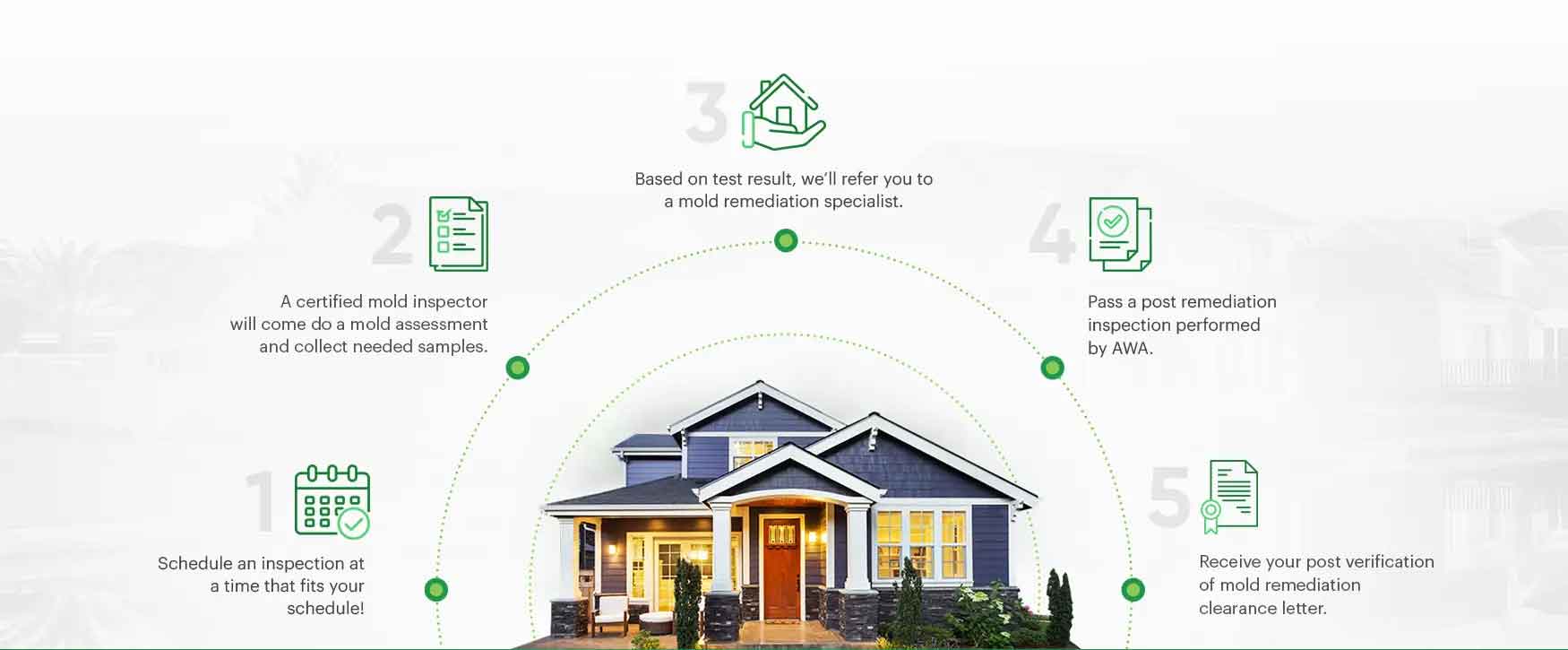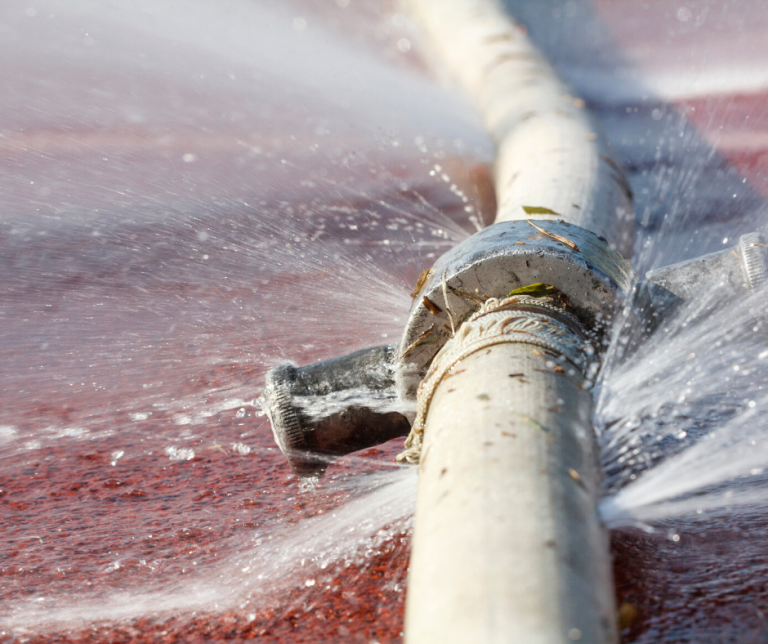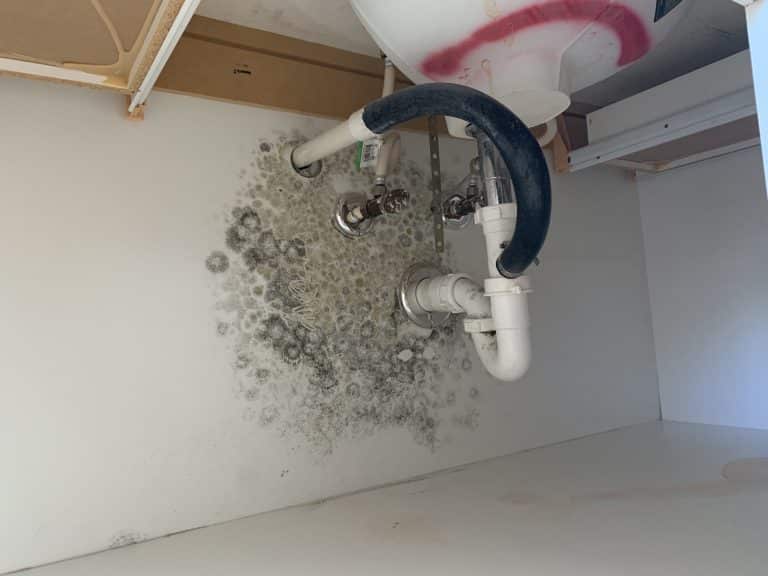MOLD Inspections & Testing
MOLD TESTING SERVICES BY LICENSED PROFESSIONALS
THE AWA DIFFERENCE
At AWA we do things differently. That means the safety of you,
your family, and your home are our #1 priority.

HASSLE FREE QUOTES
Get a hassle free quote in under 10 minutes, just give us a call or fill out the form below.

SUPER COMPETITIVE PRICING
No-Nonsense Pricing. Our pricing is extremely competitive in the Houston area.

LICENSED, CERTIFIED, & INSURED
Our services are backed by certified industry professionals with decades of experience.
MOLD INSPECTION SERVICES

MOISTURE READING
Moisture meters are one of the main tools used by certified mold inspectors to determine mold growth.

VISUAL INSPECTION
A comprehensive visual inspection is the first step of the mold inspection process that a certified mold inspector.

AIR SAMPLING
AWA Environmental takes air samples for two important reasons, the mold is not visible to the naked eye and the types

SURFACE SAMPLE
AWA Environmental’s certified mold inspector can take a surface sample using a swab or a sticky tape, this is done when an unknown.

BULK SAMPLING
The certified mold inspectors at AWA Environmental may also use bulk sampling to help identify the presence of mold.
OUR 5 STEPS PROCESS
The AWA mold inspection process is simple, affordable, and efficient, with no gimmicks. We ensure the highest caliber of customer service. We will communicate with you through the whole process.


Schedule an inspection at a time that fits your schedule!

A certified mold inspector will come do a mold assessment and collect needed samples

Based on test result, we'll refer you to a mold remediation specialist,

Pass a post remediation inspection performed by AWA.

Receive your post verification of mold remediation clearance letter.

CLIENT REVIEWS
Safety of you, your family, and your home are our #1 priority.
Gabrilla Garrett2021-08-11Daniel was very professional and explained his role and the testing he was there to perform.Rene Brown2021-06-08Great jobJane Boltz2021-06-08Thank you, the inspection report and your great customer service. Ryan was very professional and thorough. My husband and I were very impressed with your professionalism and information provided. Also, thank you for coming on Memorial Day! That truly was an extra mile on service.Jameson Sparck2021-05-18Adam was great to work with. He is knowledgeable about molds, professional, and responsive. We would use him again and recommend him to anyone looking for help identifying a potential mold problem. Thank you 🙏.Jeffrey Abe2020-10-29Service was extremely professional and helpfulDr. Bennie Bellvin2019-11-19My inspector showed up on time will all of the proper equipment. He explained in great detail the processes and procedures in advance and was able to complete his assessment efficiently. Furthermore, Adam got me the results back quick so that I could move forward with my project.Google rating score: 5.0 of 5, based on 21 reviews
FREQUENTLY ASKED QUESTIONS
The short answer is moisture. Any water exposed or available in the home can be utilized to grow mold. This can come in the form of humidity or a water leak. Leaks can come from plumbing sources, roofs, or exterior windows and walls. Humidity can become an issue when your home’s HVAC system is not regulating moisture properly. These are only a couple of the common ways moisture is let out in the home for mold to develop, but as inspectors we take great care with inspecting all areas of the home and all possible sources of mold growth.
It can grow anywhere there is a water source and food source. Food sources can include drywall, wood framing, and cloth materials or anything with cellulose. Bathrooms and kitchens are commonplaces of growth due to access of plumbing sources. Since water can penetrate many different building materials, it is common to find mold wherever there has been water damage in the home.
Any sight of mold is considered to be a problem. Mold is not meant to grow in homes, so the first sight of mold should be your first warning that there is problem. Mold does not grow on its own without a food and water source, as mentioned above, so it is extremely important to determine the cause of mold growth as soon as it is noticed. Some examples of larger functions failing that produce mold are plumbing leaks or improperly run HVAC system. Either way, it is important to not take the first sight of mold lightly as this can be a turning point in getting ahead of further spreading.
As much as we would like to quiet the fears and anxieties of our customers, we do not operate as medical professionals that can determine or diagnose whether you have been exposed to mold. If you believe you are suffering from mold-related health conditions, we strongly recommend that you consult a medical professional immediately.
As inspectors, we will do our best to identify any conditions of mold so that your health professional has the best information possible to treat any mold-related illnesses. Additionally, we want you to feel safe in your home and will do our best to remedy any mold issues suspected in your home or dwelling.
As much as we would like to quiet the fears and anxieties of our customers, we do not operate as medical professionals that can determine or diagnose whether you have been exposed to mold. If you believe you are suffering from mold-related health conditions, we strongly recommend that you consult a medical professional immediately.
As inspectors, we will do our best to identify any conditions of mold so that your health professional has the best information possible to treat any mold-related illnesses. Additionally, we want you to feel safe in your home and will do our best to remedy any mold issues suspected in your home or dwelling.
Have Questions?

We're just a phone call away
SERVICE AREAS
Cities
- Aliso Viejo, CA
- Anaheim, CA
- Azusa, CA
- Baldwin Park, CA
- Bel Air, CA
- Beverly Hills, CA
- Brea, CA
- Calabasas, CA
- Compton, CA
- Corona del Mar, CA
- Costa Mesa, CA
- Covina, CA
- Duarte, CA
- El Modena, CA
- Encino, CA
- Fullerton, CA
- Glendora, CA
- Hacienda Heights, CA
- Irvine, CA
- La Cañada Flintridge, CA
- La Habna, CA
- La Verna, CA
- Laguna Beach, CA
- Laguna Niguel, CA
- Los Angeles, CA
- Malibu, CA
- Newport Beach, CA
- Newport Center, CA
- Newport Coast, CA
- North Tustin, CA
- Northwood, CA
- Orange County, CA
- Pacific Palisades, CA
- Palos Verdes, CA
- Pico Riveria, CA
- Placentia, CA
- Rancho Palos Verdes, CA
- Rowland Heights, CA
- San Dimas, CA
- San Marino, CA
- Santa Ana, CA
- Santa Monica, CA
- Tustin, CA
- Villa Park, CA
- Walnut, CA
- West Covina, CA
- West Hollywood, CA
- Whittier, CA
- Woodbridge, CA
- Daytona Beach, FL
- Destin, FL
- Fort Lauderdale, FL
- Fort Myers, FL
- Gainesville, FL
- Hialeah, FL
- Hollywood, FL
- Homestead, FL
- Jacksonville Beach
- Jacksonville, FL
- Key Largo, FL
- Key West, FL
- Kissimmee, FL
- Melbourne, FL
- Miami Beach, FL
- Miami, FL
- Orlando, FL
- Panama City, FL
- Pensacola, FL
- Saint Petersburg, FL
- Tallahassee, FL
- Tampa, FL
- West Palm Beach, FL
- Atascocita, TX
- Austin, TX
- Baytown, TX
- Beaumont, TX
- Bellaire, TX
- Bryan, TX
- Channelview, TX
- College Station, TX
- Conroe, TX
- Corpus Christi, TX
- Cypress, TX
- Dayton, TX
- Deer Park, TX
- Friendswood, TX
- Galveston, TX
- Houston, TX
- Huntsville, TX
- Katy, TX
- Kingwood, TX
- La Porte, TX
- Lake Jackson, TX
- League City, TX
- Livingston, TX
- Mission Bend, TX
- Missouri City, TX
- Pasadena, TX
- Pearland, TX
- Port Arthur, TX
- Rosenberg, TX
- Sour Lake, TX
- Sugar Land, TX
- Texas City, TX
- The Woodlands, TX
- Tomball, TX
- Victoria, TX
- Winnie, TX
Don’t see your area listed above? No worries, give us a call and we will let you know if we service your area.
If you’ve been experiencing allergy-like symptoms inside your own home, it could mean there’s a much bigger problem lurking beneath the surface…
Signs Your House Has A Mold Problem
If you experience any of these symptoms, you might have a mold problem:- Breathing problems like wheezing
- Watery Eyes
- Runny nose
- Red eyes
Here’s some other signs to look out for:
- Visible mold growth
- You notice condensation on or around your windows
- Discoloration of walls and paint
Why and How Should I Test for It?
You might decide to test for mold for a variety of reasons including:- You suspect your house has mold.
- You’re buying a new home or property and want to be sure that your potential new home doesn’t isn’t hiding any mold problems. Some homeowners may attempt to mask the problem by painting over the mold.
- You’re renting a home and you need proof to take legal action against your landlord.
- You’ve hired a mold remediation company and you want to make sure that the cleanup was successful.
- The average user may not know where to look or how to collect a proper sample for the kit.
- The test may be inaccurate if the user misinterprets the directions or doesn’t follow the instructions for the test kit.
- These kits may confirm that you do have a mold problem, but they won’t tell you where it’s coming from or how serious it is. All of which is important if you want to eliminate mold completely from your home.
Hiring A Professional Houston Mold Inspector
Unlike a DIY mold testing kit, a professional mold inspector has the proper knowledge and training to know where and how to test for mold. A professional mold inspector will use specialized equipment to not only confirm the presence of mold, but can also identify the type, the severity of the problem, and determine where it’s coming from. To eliminate mold, you need to be able to fix all water leaks and plumbing issues otherwise the problem will keep reoccurring. Some other reasons you might consider hiring a mold inspector after you’ve confirmed a mold problem is to ensure that you’ve eliminated any traces of mold after you’ve finished the cleanup process or hired a professional to do it for you.What Should You Look for In A Professional Houston Mold Inspection Company?
When hiring a professional mold inspector, keep the following checklist in mind:- Ask if they’re licensed and or certified. Some certifications require continuing education to keep their certification. The state of Texas does allow for licensing and certifications for mold inspectors.
- Will you be getting any reports once the inspection has been completed? Verbal reports are common for less serious cases, but physical reports are more comprehensive and can give you more details such as a recommended plan of action and any suggestions on the type of remediation needed.
- Ask them how the samples are analyzed. Some companies will offer to perform the tests right out of their own mobile lab, but professionals will usually send the samples to an accredited independent lab who will analyze the results. If lab testing is performed, be sure to ask how long it will take to hear back on the results.
- Ask them how they test for mold. There’s a variety of tests that can be used to determine whether your house has mold. Ideally, you’ll pick a professional company that uses an assortment of tests instead of just one.
- Ask if they have any references you can call. This isn’t necessary, but it may make you feel more at ease knowing the opinions of local people who have hired the company or individual you’re considering.
What Should I Expect During A Mold Inspection?
If you’ve decided to hire a professional to inspect your home for mold, you might be wondering what the process looks like and what you should expect. The process can take up to an hour but in some cases, it may take longer depending on how big your house is. How each professional carries out an inspection may vary from professional to professional but in general, the inspection process probably will go something like this:- They’ll ask you questions. They’ll probably ask you questions like: when did you first start to notice any signs of mold? If you’re aware of any plumbing or water leak problems? Have you seen patches of mold and if so, where? Don’t worry if you don’t know the answers to all of them- just try and answer them the best you can.
- They’ll begin with a visual inspection. This might mean walking your entire property or entering your home to look for any signs of water damage, water intrusions, or any leaks from faucets and pipes. During this process they might use moisture readers to also calculate the temperature and the humidity of certain areas of the home which can help them determine where mold is hiding. They may also take several photos of your home or more specifically of the problem areas- so don’t be alarmed if you see them taking pictures.
- They’ll begin the surface sampling process. The goal of this test is to determine the type of mold that your house has. This is important since some species of mold like Black Mold (Stachybotrys) is extremely hazardous to our health and requires specialized handling to eliminate it. During the sampling process, the inspector may use cotton swabs or a specialized type of tape to obtain the proper samples to be sent into the lab. As soon as the sample has been collected, it’s placed in a sterile container or bag to be sent immediately to the lab. Failure to handle the samples correctly can result in incorrect results or having to repeat the same test again.
- They might perform an air sample test. Depending on the professional mold inspector, they might also use air sampling to check whether airborne mold spores are floating around in your home. This might be optional depending on your concerns and whether the mold inspector thinks it’s necessary. A variety of tools can be used to achieve this sample, but the process usually involves taking a sample of air which is then imprinted into a glass substrate to be sent to a lab.
What Should I Look for In A Professional Mold Removal Houston Company?
When hiring a professional mold remediation company, keep the following checklist in mind:- Ask if they’re licensed and or certified. Don’t waste your money on a mold removal company who cannot prove they’re licensed and certified.
- Are they willing to work with other service providers if the problem falls out of the area of their expertise? If there’s an issue with your ventilation system or a structure issue with your house, they should be willing to work with the appropriate professionals to help come up with a solution that works for everyone.
- Ask them about the remediation methods they use. The first step requires locating and identifying the source of the moisture problem, so it can be fixed. Once the source of the water leak has been identified, all contaminated materials are removed and/or cleansed. This process shouldn’t be taken lightly and is important to ensure that there won’t be any future problems.
- Make sure they guarantee their work. Any professional company will be willing to guarantee and stand behind their work.
Should I Hire A Company That Offers Inspections and Remediation Services?
No. You may be tempted to hire a mold inspection and removal company just to save time and money, but this may end up costing you more in the long run. A mold inspector generally tests for and confirms the presence of mold. Their profits are the same regardless of how big of a mold problem your house has. A company that offers to inspect and treat your house for mold may exaggerate their claims just to fatten your bill.How Do I Control Mold Growth in My Home?
After you’ve hired a mold inspection company and have taken the necessary steps to eliminate all water leaks and clean up the mold, what can you do to control it and keep it from happening again? You Can Control It By:- Managing humidity levels. This might mean purchasing a humidifier to help keep the humidity levels in your home in check.
- Immediately fixing any water leaks. Don’t ignore window, roof, or leaks from pipes. A small leak can lead to a bigger problem down the road.
- Immediately beginning the restoration process after a flood. Don’t try and clean and dry everything yourself. Doing damage control after a flood isn’t the time to skimp on hiring help. Hire a professional to do it for you so don’t have to worry about the consequences later down the road.
- Making sure your bathroom, laundry room/wet room, and kitchen are properly ventilated.








